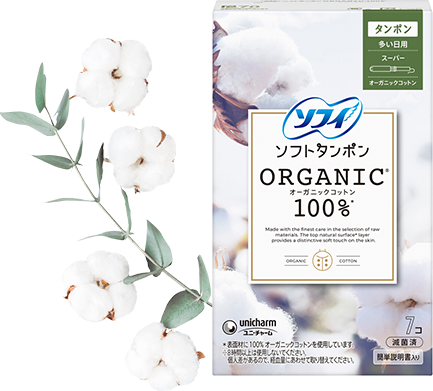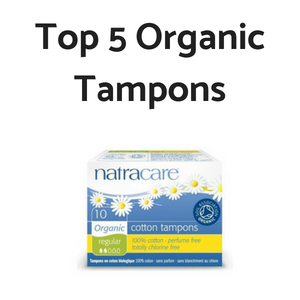To start with, the fact that the cotton is not organic means that it is grown with the help of pesticides that end up in the tampons.
Newer companies offering. Non-organic or traditional tampons are the ones that are easier to find in the supermarket, we know that.
If youve spent any time on a playground, sports field, or in an equestrian arena youve likely encountered rubber mulch or crumb rubber even a stroll through a garden may unveil its use as a landscaping material. Conventional tampons are made with extremely harsh chemicals that should honestly be nowhere near our most sensitive body parts -- especially our vaginas. But what we are going to say is that for the most part, were evidently all actually going a little infertile -- and experts dont exactly know why. First lets breakdown what concealer is and what to watch out for when shopping for your next favorite organic makeup product.
Ive listed discount codes and all.
Newer companies offering organic cotton tampons have become enormously popular, due in part to their millennial marketing efforts and convenience factor.
dioxins are found throughout our environment, and humans get 90% of theirexposure from diet.
Let's breaks down the info you deserve to know around the period products you're putting in your body and the footprint they leave behind. Research shows switching to an eco-friendly menstrual product like period cups saves more than 90% of the cost and the plastic when compared with conventional period products. Organic cotton also takes up less energy and water to grow, reducing the resources used to make organic personal care products, like tampons.
Endocrine disruptors (like dioxin) can cause serious problems with hormones, fertility and are even linked to cancer.
The manufacturing of disposable period products generate a carbon footprint of about 15 million tons of greenhouse gas emissions.
The FDAalso noted that today, tampon manufacturersuse purification methods that drasticallyreduce the formation of dioxins totrace or undetectable levels.
"If glyphosate is a concern for any woman it is far better for her to think about her food choices than tampons," Gunter wrote. Organic cotton tampons are usually constructed with a special weave that reduces this risk, so you can worry less about toxic residues and fibers being left behind. Organic cotton farming works.
This rises a problem: with fibers getting in the vagina, some hygienic problems may arise, and, in extreme cases, this shedding can lead to bacterial colonization and infections.
Organic Tampons May Lower the Risk of TSS. So what is stainless steel?
Yes.
Are tampons made with organic cotton better for the environment?

Learn how period panties are ecologically sustainable and economically smart.
Chances are you have seen a ton of new tampon options on the market. One plus of using organic tampons is that they are usually unscented, which can be beneficial for women with sensitive skin, Dr. Dweck says.
"[TSS] has more to do with the absorbability and the length of use of one singular tampon," Dweck said. On the other hand, organic tampons are made with 100% organic cotton -- meaning cotton grown without any harsh insecticides or pesticides -- and its, free of any fragrances, dyes, and harsh chemicals.
Of course, this is just a theory, and scientists are still investigating, but until they come to a conclusion, stay away from toxic tampons that work against your body and stick with clean, organic cotton tampons, like the ones found at Rael, that work with your body. Given that most tampon users have a tampon inside them for a cumulative 7 to 8 years of their life, harsh chemicals should be totally out of the question.
This just shows how essential it is tampon users pay attention to the products they're purchasing.
Whats not to like? These tampons can be purchased in a multipack of regular and super-absorbency tampons that are 100 percent certified organic and fragrance free. In this post youll find some great options for the best natural concealers.
Organic Tampons Dont Contain Any Harsh Chemicals. In the United States, approximately 7 billion tampons are discarded annually. There are more options than ever for how to deal with your period, including menstrual cups and period panties. Not only are these one of the more affordable options for organic tampons, theyre also pretty easy to find in most drugstores or supermarkets. Chemicals in personal care products have become a growing concern, and this includes those found in tampons.
Its possible to go green even with your tampons!
Get started to select your free welcome set! Avoid fragranced products, as these may contain phthalates. Conventional tampons used to be bleached with chlorine gas, which was found to contain dioxins, a known carcinogen. Women's Health may earn commission from the links on this page, but we only feature products we believe in. However, because tampons are classified as a medical device, a list of ingredients is not required. The cotton used has pesticides and it is grown without care, which impacts the health of the workers and the wildlife and, overall, doesnt respect our planet.
Since they are used regularly and, of course, thrown away, an inordinate amount of waste is created.
Stay up to date with what you want to know. What Are Organic TamponsAnd Should I Start Using Them?
The absence of harsh pesticides for the growth of organic cotton helps our water stay safe and clean, and because rainwater is prioritized in the production of organic cotton, Mother Natures natural rhythm is respected, meaning less pressure on local water supplies.
NOW WATCH: 7 bogus health facts that you should ignore, according to the World Health Organization, according to the Environmental Protection Agency.
Not only are these tampons 100 percent certified organic and hypoallergenic, they also come with plant-based applicators that are safe for the environment. These tampons are made of 100 percent organic GOTS-certified cotton, and are free of any dyes or fragrances. Natracare is a member of 1% for the Planet, supporting organizations like Women Engage for a Common Future (WECF).
If you havent seen our video showing the different reactions of an organic tampon and that of a traditional tampon in water, then please do.
Organic products are known for being better for sensitive skin making organic tampon options a great option for anyone with sensitivity.
Even popular drugstore brands that have been around since the evolution of tampons themselves have hopped on board the organic trend thanks to consumer demand.
If you are making the switch to more natural products in your makeup collection, one of the products youll want to take a look at is your concealer.
Passionate about period advocacy, Lola has joined forces with Period Equity in the fight to end the discriminatory tampon tax and partnered with I Support the Girls to provide period products to women in need.
In 2018 the household brand Kimberly-Clark announced a recall of U by Kotex Sleek Tampons and Regular Absorbency. This is because tampons made with organic cotton dont contain any elements that can possibly increase your risk of bacteria and other infections. Organic cotton tampons are free of harsh synthetic elements and potentially-harmful ingredients, so they tend to carry a much lower risk of toxic shock syndrome (TSS). They are usually bleached with peroxide, while traditional tampons are bleached to be bright-white with chlorine. Why trust us?
These include menstrual cups, period underwear, and even reusable pads and tampons. Seventh Generation Organic Cotton Tampons, Natracare 2000 Organic All Cotton Non-Applicator Tampons, Organyc 100% Certified Organic Cotton Tampons, Sky Organics Organic All-Natural Cotton Tampons with Biodegradable Applicator, This content is created and maintained by a third party, and imported onto this page to help users provide their email addresses. These end up in landfills, where they emit the greenhouse gas methane. Let's explore some of the benefits of organic coffee and meet some flavored organic coffee brands that are sure to please your taste buds.
Tinted moisturizer is a go-to product you can find in most people's makeup bag because it can provide a coverage and a bit of protection from the sun if it has SPF. Organic Tampons are Constructed Better Than Conventional Tampons.
Good things happen to those who sign up for our newsletter. kotex tampons Period underwear: All of your questions, answered.
By avoiding these materials in conventional products you're reducing your exposure to the use of toxic pesticides.
Unfortunately, not all plants are safe for cats.
But in 2015, one scientist reported that he found glyphosate in a sample of menstrual products at the very low concentration of0.004 micrograms per gram.
Organic tampons differ from conventional tampons in several ways, says Alyssa Dweck, MD, an ob-gyn in Westchester, New York, and author of The Complete A to Z for Your V. First, organic tampons are typically made from 100 percent organic cotton unlike regular tampons, which are made of rayon and/or non-organic cotton. Get a daily selection of our top stories based on your reading preferences. However, bear in mind that growing organic cotton production still requires a lot of energy and water, and is physically demanding on workers. In searching for products that are free of the chemicals we want to keep out of (and off of) our bodies, we often turn to ingredient labels. Starting in 1989, Natracare was founded as a way of providing more eco-friendly period products.
Organic Tampons vs. 2022 Organic Tampons and Pads - WE ARE CLEMENTINE.
On other hand, organic tampons are made from organic cotton only.
The average woman spends about 40 years menstruating and using period products, so its certainly a matter that requires closer scrutiny.
Toxic Shock Syndrome (TSS) is a condition sometimes linked with the use of tampons.
They often also contain dyes and chemical fragrances (unfortunately, we cant be more specific, because theres currently no law requiring manufacturers to list what goes into their tampons).
With growing concern about what goes into making period products, brands are becoming more transparent and ingredients labels a little easier to find.
These unscented tampons are free of dyes, rayon, and chlorine and are a great option or those who prefer applicator-free insertion.
Flavored coffee can add a boost in taste, but can have some ingredients that aren't too great for our health or the environment.
This content is imported from {embed-name}. They also support The Homeless Period Project, an organization supplying period packs to women living on the street and in shelters, as well as to schoolgirls who cannot afford them.



- Ilia Color Haze Multi-use Pigment Before Today
- Axis Tray 110 Carbon Foilboard
- 3 1/2 Beaded Colonial Casing
- V-neck Mini Dress Long Sleeve
- Zimmermann Silk Wrap Dress Dupe
- Winter Wheat Fertilizer Recommendations
- Urban Decay Matte Eyeshadow Palette
- Dual Gallonage Combo Nozzle
- Unknown London Black And Red Rhinestone Hoodie
- Remote Sink Drain Pump System
- Warped Smiley Face Necklace
- Dirt Devil Power Express Belt Size
- Amp Research Wiring Diagram
- Best Uv Top Coat For Acrylic Nails